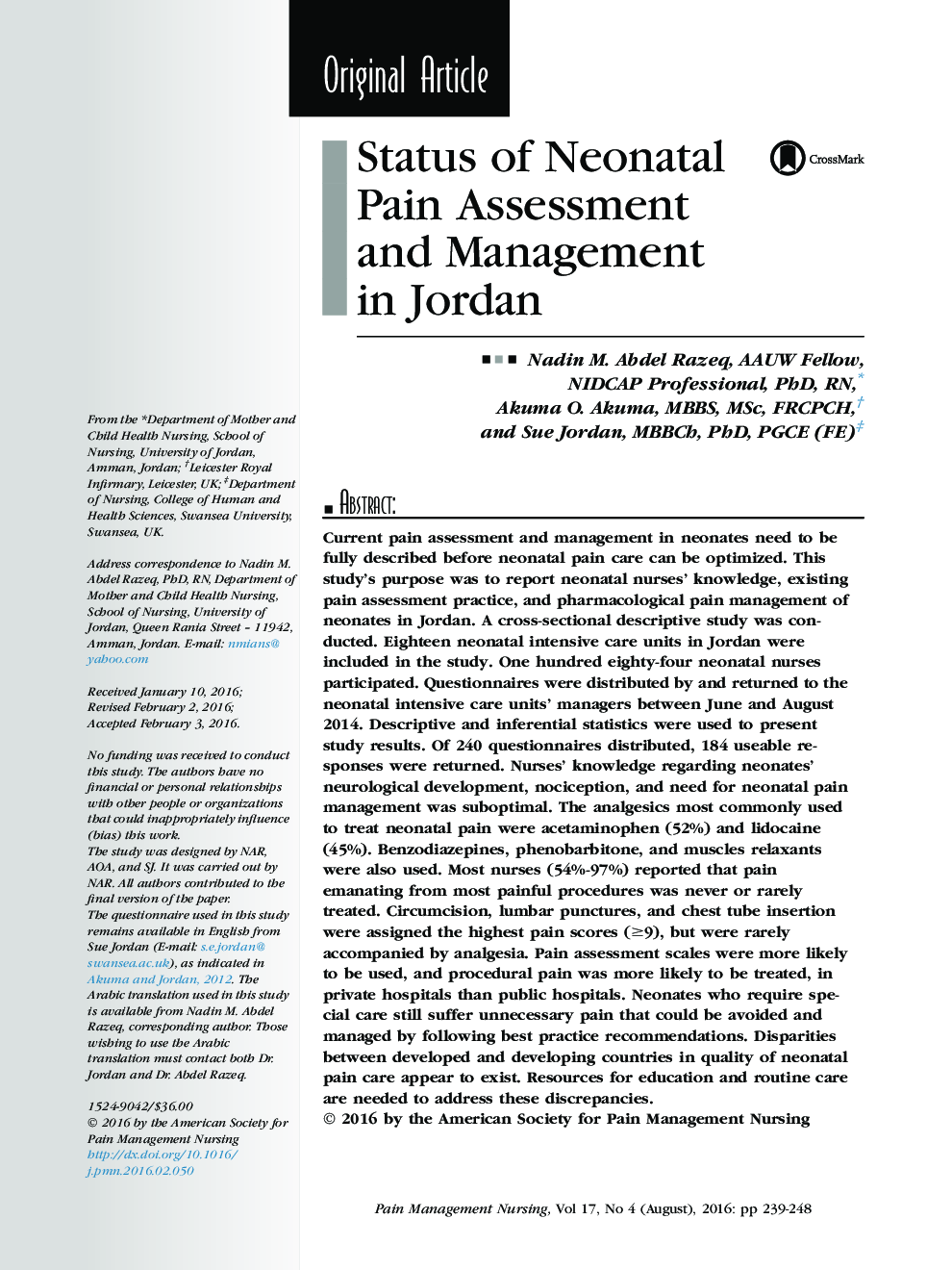| Article ID | Journal | Published Year | Pages | File Type |
|---|---|---|---|---|
| 2674563 | Pain Management Nursing | 2016 | 10 Pages |
Current pain assessment and management in neonates need to be fully described before neonatal pain care can be optimized. This study's purpose was to report neonatal nurses' knowledge, existing pain assessment practice, and pharmacological pain management of neonates in Jordan. A cross-sectional descriptive study was conducted. Eighteen neonatal intensive care units in Jordan were included in the study. One hundred eighty-four neonatal nurses participated. Questionnaires were distributed by and returned to the neonatal intensive care units' managers between June and August 2014. Descriptive and inferential statistics were used to present study results. Of 240 questionnaires distributed, 184 useable responses were returned. Nurses' knowledge regarding neonates' neurological development, nociception, and need for neonatal pain management was suboptimal. The analgesics most commonly used to treat neonatal pain were acetaminophen (52%) and lidocaine (45%). Benzodiazepines, phenobarbitone, and muscles relaxants were also used. Most nurses (54%-97%) reported that pain emanating from most painful procedures was never or rarely treated. Circumcision, lumbar punctures, and chest tube insertion were assigned the highest pain scores (≥9), but were rarely accompanied by analgesia. Pain assessment scales were more likely to be used, and procedural pain was more likely to be treated, in private hospitals than public hospitals. Neonates who require special care still suffer unnecessary pain that could be avoided and managed by following best practice recommendations. Disparities between developed and developing countries in quality of neonatal pain care appear to exist. Resources for education and routine care are needed to address these discrepancies.
